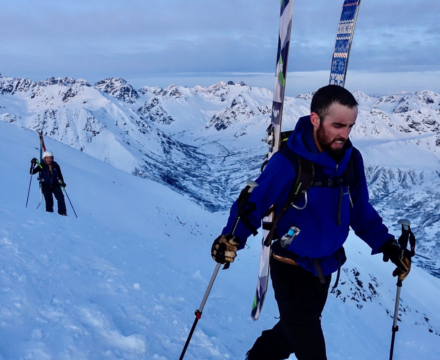
This is my husband Joe. He wrote this week’s blog post covering the klesha fear.
I was able to call Joe during my second time in India for my 300-hour yoga teaching training. I spoke to him every evening to tell him about all I was learning- specifically the teachings from my yoga philosophy class. This experience changed the conversations that took place between us and I after I returned home. He listens to what I am attempting to understand and shares his own interpretations and knowledge of various teachings. Our exchanges are all a part of an endless attempt to make sense of this life.
Joe encouraged me to share what I learned with others through this blog. He has offered endless support, humor, and encouragement along the way. When I am unsure of myself, he is that voice of guidance that gives me just the push I need to keep on going. Joe also loves learning about different philosophical ideals as a way to continuously better himself. I have never met anyone like him.
And yeah, he’s pretty great and I hope you enjoy his post!
Spiders and Bears: My Interpretation of Fear
By Joseph
Hello everyone, this is Joseph Bentel speaking (Kristin’s husband and blog reader). This week I am contributing to the blog and covering the klesha known as fear. Be sure to check out the three previously discussed mental afflictions- ignorance, identity & attachment– if you haven’t done so already.
My goals are to discuss spiders and bears, fear, my understanding of the Kleshas, and how I try to handle mental afflictions of the yogic kind. Enjoy!
Instinct or Unnecessary?
Fear of death, loss, or change causes pain in everyone (Yoga Sutra, 2.9)
 What is your worst fear? Is it a fear born of ignorance? Is it a fear generated by desire? Is it a fear of who you really are? Maybe it’s a fear of spiders, like me. This week’s blog will focus on the klesha, or mental affliction, called fear.
What is your worst fear? Is it a fear born of ignorance? Is it a fear generated by desire? Is it a fear of who you really are? Maybe it’s a fear of spiders, like me. This week’s blog will focus on the klesha, or mental affliction, called fear.
Back in the caveman days, we needed fear. Fear kept us alive. Fear kept us in the cave and away from the countless ways of dying in those early human years. Could you imagine watching your buddy get eaten by a giant tiger? The sound alone…but let’s not get into that, because these days we don’t have to. But there are still things out there to be scared of right?
Did you know that each year the average person swallows 5-8 spiders while sleeping? This seems like bad news, but really the good news is it’s not true. Spiders are way too smart to be crawling into our mouths. But for years I believed this myth and in my ignorance also carried a healthy fear of spiders. I also spread this rumor and thus spread fear to many unsuspecting people.
When I lived in Nevada I was scared of Black Widow spiders. When they grow really big, they almost turn a dark purple. They are nocturnal so during summer evenings in the desert, I would venture into the yard with a flashlight and a can of spider spray and go hunting for black widows. In this way I thought I was conquering my fear of spiders, but was I?
No, I was not. I was simply wasting precious time and energy. Black widows are insects, and thus are attracted to our houses because so many other insects are. They are simply surviving, and doing a good job of it. In fact spiders like many creatures don’t want anything to do with people, and if they end up in our houses, it’s most likely a mistake.
I know now to practice spider karma. What is this yogic philosophy you might ask? Well, the more spiders we kill, the more spiders we are likely to see, and the more fearful of the spiders we become, convinced in our ignorance that they are out to get us. Instead of hating on these industrious little guys, I catch them using a glass and a piece of paper and take them back outside so they can help keep the mosquito, fly, and ant population to a minimum. Fear conquered by rational thinking!
ALASKA equals BEARS…
 Each year in the early summer we put away our ski gear, and out come the bears! Here in Alaska we have many varieties of bears; black bears, brown bears, polar bears, Three Bears (a grocery store), Kats (a half-man half-bear of native Alaskan mythology), Yogi Bear, and Pizzly bears (polar slash grizzly).
Each year in the early summer we put away our ski gear, and out come the bears! Here in Alaska we have many varieties of bears; black bears, brown bears, polar bears, Three Bears (a grocery store), Kats (a half-man half-bear of native Alaskan mythology), Yogi Bear, and Pizzly bears (polar slash grizzly).
When I first hit the dirt trail in the summer I had an attack of what we call ‘bear scare’. It is perfectly reasonable to be fearful of bears, provided there is a bear around, and that bear is aggressive. But this is not the case with ‘bear scare’. At the start of each summer season I fill my mind with terrible thoughts of bears coming out of their dens to get me, and each year this irrational fear never fails in ruining at least one walk in the woods.
Just like spiders, bears generally try and avoid me, because I am human. But my mind wants to convince me otherwise. Like many other Alaskans I carry some form of bear protection. Some people use pepper spray like me, some people use a gun, and some people carry pepper spray, a gun, and then another gun. What seems to work best is noise, and lots of it. Bear bells on dogs, bear bells on people, loud friends, clapping hands, and singing kids.
It must be incredibly difficult to survive as a bear in Alaska. With this thought in mind it seems obvious to avoid surprising a bear in the forest. If a bear came to my house I would expect him or her to make their presence known. In this perspective my selfish ‘bear scare’ turns to empathy for an animal in the throes of survival. Once again fear is conquered by rationality!
F.E.A.R.
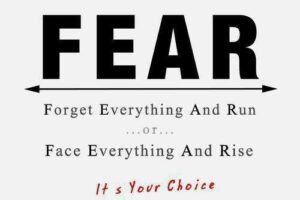 I do not have the technical and philosophical knowledge that my wife Kristin has. Generally speaking she is much smarter than me. I am hoping that my spider and bear analogies make it clear how fear can be such a powerful mental affliction, but just in case, let me extrapolate.
I do not have the technical and philosophical knowledge that my wife Kristin has. Generally speaking she is much smarter than me. I am hoping that my spider and bear analogies make it clear how fear can be such a powerful mental affliction, but just in case, let me extrapolate.
Fear is an acronym for false evidence accepted as real. You might think this is cheesy, but I kind of like it. Bears are coming for me! And spiders! This is false. But my mind wants to believe it, and sometimes succeeds. Why?
Fear is one of our more powerful animal instincts. Through millions of years of evolution, fear has become part of our genetic code. It’s almost like an automatic default. When any new or unfamiliar situation arises, we generally tap the fear button. Questioning “is this a good idea or what could go wrong?” seem to also be asking “will I survive this?”
In some cases fear contributes to our self-preservation. Don’t go too close to the cliff. Watch out for drunk drivers. This type of fear is useful. But over the course of millenia, our natural instinct to fear has become somewhat misplaced. How do we know if our fears are hijacking our minds?
The central issue with the klesha of fear is this: fear causes irrational thinking. Because of this correlation we may not know when our fears are running away with us. We simply cannot think rationally. Have you ever been paralyzed by fear? I have and I struggled just to control my body’s reaction, forgetting completely about my mind.
Out of all the Kleshas or mental affliction in yogic philosophy, fear seems to be the most difficult one to combat. I am fearful of my fears, how ironic.
The Kleshas and ME
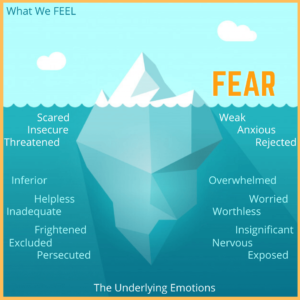 Okay, so I have been closely following the blog and understanding the concepts of the Kleshas and how they connect has helped me control my thinking and in some ways helped me identify when I am misusing fear.
Okay, so I have been closely following the blog and understanding the concepts of the Kleshas and how they connect has helped me control my thinking and in some ways helped me identify when I am misusing fear.
What we don’t know scares us. Fear of the ‘other’ or the unknown is caused by ignorance, another mental affliction. I overcame my fear of spiders and bears through my attempts to learn about them and understand them. It stands to reason that we can successfully control our fears if we concurrently focus on combating the klesha of ignorance. Don’t take my word for it, find out for yourself.
Fear is also an underlying feature in every false desire we have. What is envy, jealousy, greed if it is not fear and irrational thinking? Attaching myself to substances like drugs and alcohol are yet another symptom of my fear of something. Additionally, I may remain attached to these false desires due to my fear of living without them. Does that make sense? If we eliminate our false desires maybe we can also eliminate the associated fears.
“Remember, suffering ALWAYS arises when we think things should be different than they really are” (Yogi Kristin). Our concept of identity, another mental affliction, can be skewed because our fear of who we really are is different from who we think we should be. Know who you really are and you cannot be fearful of who you aren’t (Yogi Joe).
My not-so-sectret-trick-to-controlling-my-fear
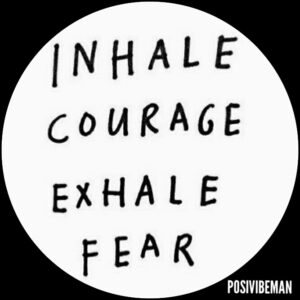 I get scared still. I am fearful. Anxiety overtakes me at times. Insecurity seeps in. What do I do when I recognize these mental afflictions? I panic. Not really, but sometimes…
I get scared still. I am fearful. Anxiety overtakes me at times. Insecurity seeps in. What do I do when I recognize these mental afflictions? I panic. Not really, but sometimes…
My trick is to focus on my breathing. I put all of my mental and physical energy into my breathwork, and then I hold it there. Will my mind attempt to interject itself again? Absolutely. So I count breaths, and use extended inhales and exhales. I align my breath with my footsteps or motions. I breathe double-time. I do whatever I can to place my mental and physical energy on my breathing and NOT on my brain. Why do you think breathing into a paper bag helps with panic attacks?
Okay thanks for reading this week and I hope you are looking forward to the next blog on the final Klesha; aversion. I know that I am!
“Those who do not believe in logic and reason cannot be conquered by it” (Ayn Rand).
Contemplation Points
- Look in your own life and discover where you may be trying to manipulate or control circumstances in your own life. Is there maybe some fear lurking underneath that?
- Once you’ve discovered your fear, what are three main thoughts you have surrounding that fear? Are they true?
- Where in your life are you using your imagination to scare yourself?
- Fear is always going to be a part of the human experience. Is there something you haven’t done because fear is holding you back? What if you did it anyways despite feeling fearful? Now, go do that thing and invite fear to come along.
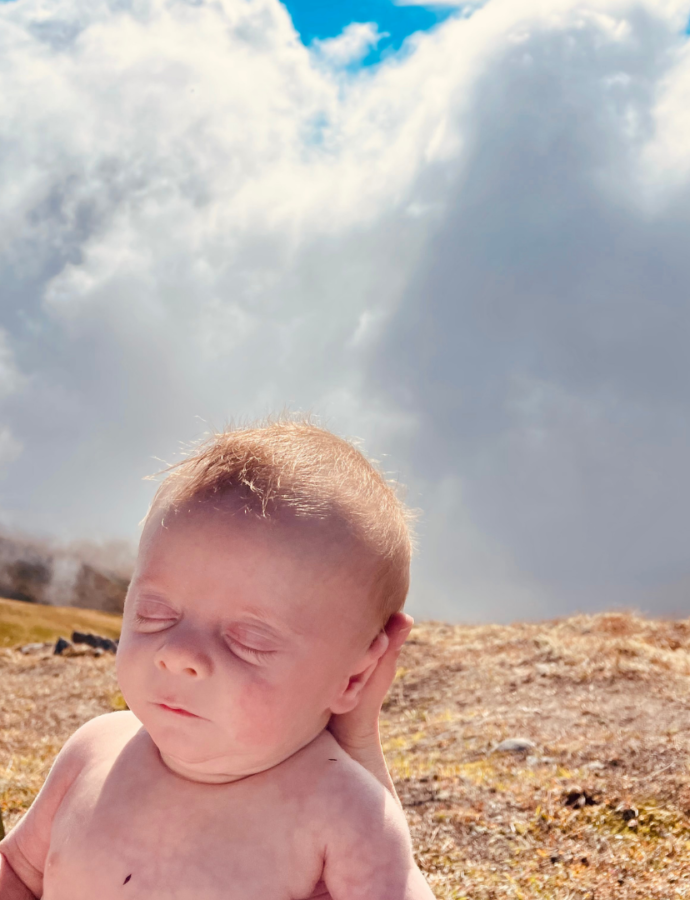

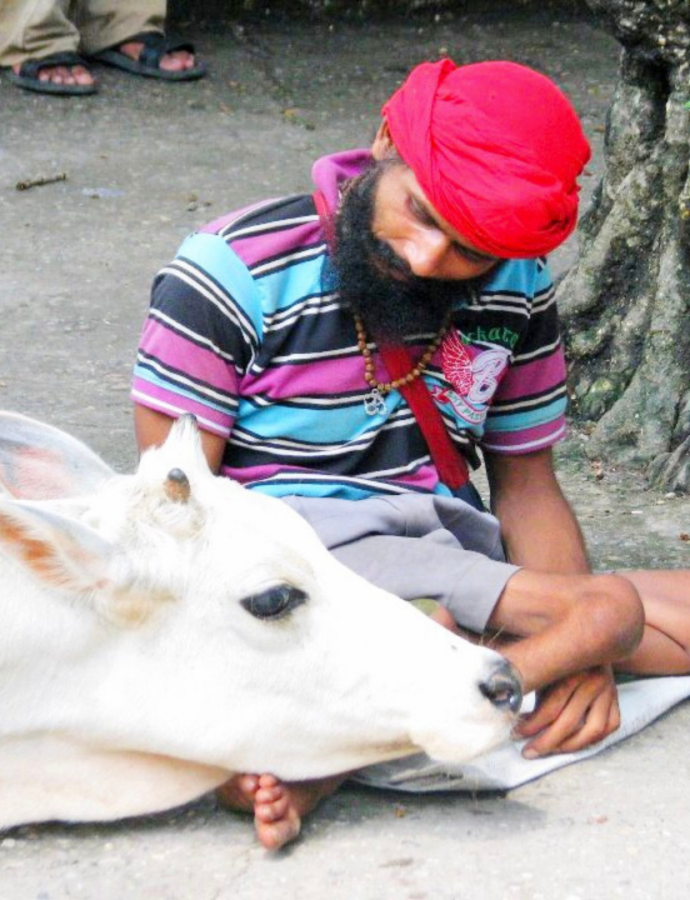

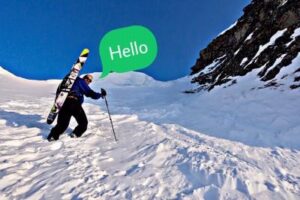
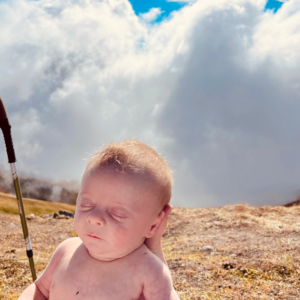


Thanks for this blog post, Joe!
I also find myself a bit fearful of running into a bear on my hikes!
And I agree that more knowledge can be a helpful antidote to fear.
However, I have recently increased my awareness of avalanches — which is adding a fear to my winter hikes! Maybe I just need to learn more so that I can figure out how to avoid them.
Anyway, I appreciate your discussion of fear and how we can stop feeding it!
Greetings! Very useful advice in this particular article! It is the little changes that make the greatest changes. Many thanks for sharing! Janette Ali Zales